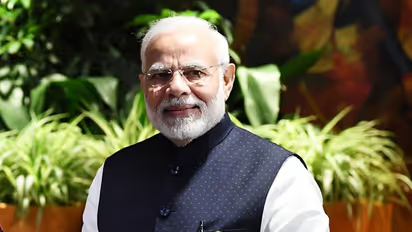
New Delhi: Who would have thought that Hindus would one day, just 70 years after Independence, demand equality with the minorities, citing “systemic and institutionalised discrimination against the Hindu society”?
On September 22, a group of around 100 Hindus, including spiritual leaders, academics, authors, doctors, engineers, journalists, public intellectuals and citizens from all walks of life and from across the country gathered in New Delhi and drafted a ‘Charter of Key Hindu Demands’ to be presented to the people as well as Prime Minister Narendra Modi.
A set of eight demands, central to which is the passage of a pending private member’s bill moved by Satyapal Singh in Lok Sabha in 2016 that demands amendment of Articles 26 to 30 of the Constitution, have been included in the charter. These articles pertain to right to freedom of religion and cultural and educational rights of the minorities.
"
The gathering, which was addressed by five panellists, including Indian classicist Bharat Gupt, founder and chief patron of Hindu Samhati Tapan Ghosh and Surendranath Chandranath, who writes on Hindu culture. The congregation demanded the “end of legal and institutionalised discrimination against Hindus by the Indian State, which is against the spirit of the equality of citizens irrespective of religious identity”.
The charter demands that equal rights be given to the Hindus when it comes to managing education institutions, just as guaranteed by the Constitution to minority education institutions, ending undue interference by the State. It also makes a case for handing over by the government the management of Hindu religious places and temples to Hindu societies.
The charter also points out the increasing influx of money from foreign countries to India under FCRA “irrespective of political colour of the Central government, and despite best efforts of the present Central government to tighten and enforce the law, the quantum of foreign contributions continues to rise, leading to ever increasing undue foreign interference in our internal affairs”.
Another demand of the charter is the passage of a Freedom of Religion Act by the Union government to “protect and preserve the Hindu native cultural and religious traditions, practices and symbols from unwarranted interference not only by the State and its agencies but also from others”.
The charter also makes abrogation of Article 370 as one of the cornerstones of its demands, arguing that “genocidal religious persecution” may be avoided in future.
Therefore, the group, “reminding the Indian State of its civilisational responsibility”, has urged the Centre to immediately establish a Central public sector undertaking to be styled as ‘Haindava Samskruti Jeernoddhaarana Nigam’ (Hindu Culture Restoration Corporation) with a seed capital of not less than Rs 10,000 crore and an annual grant of similar amount for undertaking reconstruction and restoration of all damaged, desecrated, abandoned and dilapidated Hindu temples.
The PSU would also work for “revival, nurturing, patronising and promotion of Veda Pathasalas, various traditional and folk art forms, dance, music, sculpture, architecture, painting etc”.